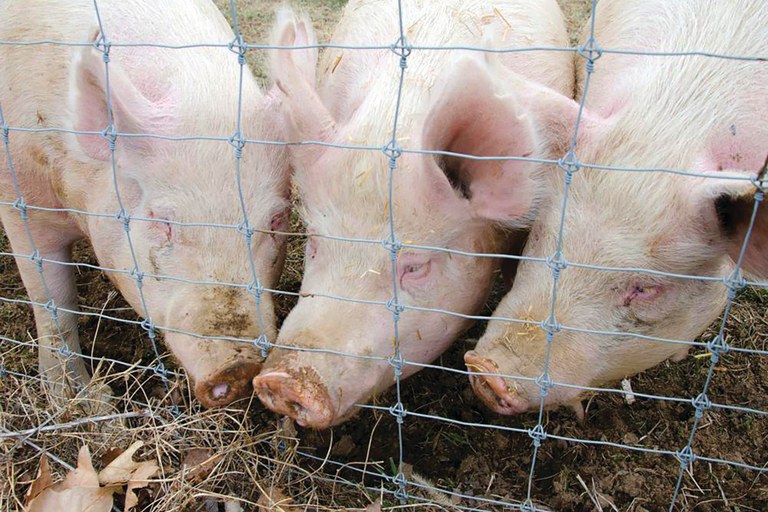Posted: March 17, 2022
Researchers create a diagnostic test to identify a bacterium that infects swine.
High-mortality outbreaks of the swine pathogen called "Strep zoo" occurred in 2019 in swine herds in Canada, Tennessee, Ohio, and Pennsylvania, putting a premium on rapid diagnosis to keep the disease from spreading. The problem is, virulent strains of the Strep zoo bacterium (Streptococcus equi subspecies zooepidemicus) are largely indistinguishable from benign strains, presenting a diagnostic challenge, according to Suresh Kuchipudi, Dorothy Foehr Huck and J. Lloyd Huck Chair in Emerging Infectious Diseases.
Kuchipudi led a team of researchers in seeking a diagnostic test that can identify virulent forms of the pathogen, which can cause a sudden onset of lethargy, weakness, high fever, and rapidly escalating mortality that can approach 30 to 50 percent of infected pigs. Different versions of the pathogen can also cause a range of disease symptoms in horses, ruminants, guinea pigs, monkeys, cats, dogs, poultry, and people.
The team set out to identify genetic factors that are unique to virulent Strep zoo bacteria, zeroing in on the SzM gene, which had been identified in previous research as a key virulence factor of S. zooepidemicus for swine but was not found in avirulent strains of the pathogen. Targeting this gene, researchers developed a diagnostic assay and used it to test for virulent and benign strains of Strep zoo and for a panel of reference bacteria and viral pathogens commonly associated with swine respiratory disease.
The team's study, published recently in Frontiers in Veterinary Science, found that the new test reliably identified virulent Strep zoo strains, while producing negative results when testing other pathogens and avirulent Strep zoo.
"Several animal infectious diseases also have zoonotic potential, meaning they can have a significant impact on public health," said Kuchipudi, who is also the associate director of Penn State's Animal Diagnostic Laboratory. "For this reason, accurate and rapid diagnosis is of utmost importance. This novel assay--which can return results in less than four hours and is the first test that can detect virulent S. zooepidemicus selectively in pigs--provides a practical solution to the previously unsolved problem of diagnosing Strep zoo in swine herds."
--Chuck Gill
Features
Breaking the Silence on Farm Stress
Farming has always been a demanding profession, but today's farmers face unprecedented pressures that can severely impact their mental health.
Biting Back
Research Targets Vector-Borne Diseases to Save Lives
Leading Forward
Ott brings deep connection to role of dean.



